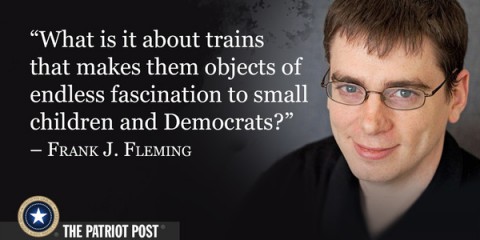By Cathy Keim
So whatever you wish that others would do unto you, do also to them, for this is the Law and the Prophets. – Matthew 7:12 (ESV)
The horrific Facebook video of four people, two males and two females, torturing a mentally challenged man has led to a vigorous debate of whether the media reported the event correctly, whether it should be classified a hate crime, why did it take so long for the police to acknowledge that it was a hate crime, etc. etc.
Sarah Palin cut through all the nonsense in her excellent Breitbart piece where she stated:
My extended family discussed the tragedy last night. We concluded we do not care about arguing the legalities involved in categorizing this as a “hate crime” or not a “hate crime.” Obviously it is a hateful, hate-filled crime centering on politics and race. Proof is on tape. Debating the merits of categorizing the disgusting racist and political taunts vomited up by thugs during their brutal beating of a helpless young man is, to us, a media distraction. I leave it to others to focus on that.
We need to step back from the racial aspect of this crime and take the bigger picture. The torturers were abusing a mentally challenged man. This is like kicking a puppy. It is so obviously wrong that it is sickening to even think about. We don’t need to discuss whether it is a black puppy or a white puppy. You just don’t kick a puppy.
It is wrong to kidnap, torture, and abuse anybody, but the case is made startlingly clear when a person with no capacity to fight back is the target. How did the perpetrators become so detached from their own humanity that they could laugh as they tortured their victim? Why didn’t anyone call the police as they were watching the live broadcast of the event?
This event needs to call our nation to some serious soul-searching. The breakdown of our society is becoming harder to ignore. Chicago is teetering on the edge of societal collapse with its murder rate soaring, as are many other major cities. Our nation has lived off the religious heritage of our forefathers for many years, but we are at the end of those benefits. One can live on the faded memories only so long.
The collective ethos of our nation has frayed to the point that our young people have no understanding of what we were. The educational system is not teaching them their heritage and the popular culture has no concept of it. Families are broken so that the final opportunity for transmitting the story of our nation from one generation to the next is lost.
It is a good thing that most people were shocked and disgusted by the event. Sadly, we are becoming immune to the brutal scenes around us due to constant exposure.
John Adams, one of our Founding Fathers and our second president, said, “Our Constitution was made only for a moral and religious people. It is wholly inadequate to the government of any other.”
We are seeing the social covenant of our nation being ripped to shreds by the differing application of laws and expected behavior. The elites are above the laws and those designated poor and minorities are not held to the law. Only the middle class is still required to abide by the cultural norms, respect the laws, and pay the taxes.
Victor Davis Hanson recently wrote a spot-on piece explaining how California is bifurcated between the cultural elites on the coast and the rural inland areas. The elites live a protected existence buffered by their wealth, while the middle class struggles to meet the increasingly stringent regulations pushed by the elites. The final blow is that while the middle class is held to the letter of the law, the illegal immigrants are exempt:
On my rural street are two residences not far apart. In one, shacks dot the lot. There are dozens of port-a-potties, wrecked cars, and unlicensed and unvaccinated dogs – all untouched by the huge tentacles of the state’s regulatory octopus.
Nearby, another owner is being regulated to death, as he tries to rebuild a small burned house: His well, after 30 years, is suddenly discovered by the state to be in violation, under a new regulation governing the allowed distance between his well and his leach line; so he drills another costly well. Then his neighbor’s agricultural well is suddenly discovered by the state regulators to be too close as well, so he breaks up sections of his expensive new leach line. After a new septic system was built by a licensed contractor and a new well was drilled by a licensed well-driller, he has after a year – $40,000 poorer – still not been permitted to even start to rebuild his 900-square-foot house.
The middle class in America is not just made up of white people. The beauty of America is that the middle class consists of citizens of every race, religion, and gender. This is the strength of America and one of the unique qualities that sets America apart. Anyone can achieve middle-class status through hard work and following the rules – at least that was the belief about how it worked.
The full-on attack against moral values, religious beliefs, patriotism, civic duty, and even masculine and feminine virtues, have left the middle class exhausted and demoralized. If they don’t pay their parking ticket, they can be hauled into court and fined. They don’t want the hassle, they don’t want to miss work, they don’t want to be embarrassed publicly, so middle-class Americans pay their parking tickets and more importantly to the politicians, they pay their taxes. On the other hand, the urban poor living off their welfare payments don’t worry about parking tickets or kidnapping, attempted murder, or raising their children to know the Golden Rule.
Illegal immigrants drive without a license, drive drunk, commit rape, and care not about the consequences. One recent example came from Kansas, where it was reported that an illegal immigrant from Mexico now accused of raping a 13-year-old girl on a Greyhound bus had been deported ten times and voluntarily removed nine other times since 2003. So in the lifespan of his alleged victim, this man has gone on a merry-go-round of coming and going across the border 19 times. It is nice to know that this man has been charged with a felony for rape, but your average citizen would like to know why was he asked to leave 19 times and was still back in our country to commit rape?
One of the valid purposes for government to exist is to provide security for its citizens. The elite can afford to pay for walls around their mansions, private security guards, and private schools for their children. They are completely immune from the ill effects that the middle class must endure due to the reckless immigration policies and the uneven enforcement of our laws.
Sadly, the lack of law enforcement leads to even more violence and mayhem in our cities. David French reports in National Review that:
When a culture breaks, it falls to the police to keep order. When they pull back, people die. That’s the lesson of Chicago. On January 1, 60 Minutes ran an extended piece, Crisis in Chicago, that’s must viewing for those who believe black lives matter. An entire police department is in full retreat. The numbers don’t lie:
As killings rose, police activity fell. In August of 2015, cops stopped and questioned 49,257 people. A year later those stops dropped to 8,859, down 80 percent. At the same time arrests were off by a third, from just over 10,000 to 6,900.
As further evidence, the Chicago Sun-Times reports (in a now ongoing “Homicide Watch” online series) that “2016 closes with at least 780 homicides in Chicago, and three more reported on first day of new year. That was the highest total in more than 20 years.”
John Adams was correct when he stated that our country will only work when its citizens are a moral people.
I will posit that America still has a large percentage of its citizens that are a moral people capable of self-government. However, we have reached a breaking point where the hypocrisy of our governing elite has pushed middle America to vote in a game-changing president. Donald Trump correctly assessed that middle America was ready for a president who would champion their cause. His first big breakthrough issue was to stop illegal immigration. Law-abiding middle Americans want everybody to live by the same laws: no more sanctuary cities, no more ignoring illegal immigrants and the employers that break the laws the hire them.
Furthermore, middle Americans would appreciate an end to the assault on our values. The Planned Parenthood video tapes clearly showed that PP employees were harvesting baby parts for profit. Transgender bathrooms were not an issue until they were foisted upon us by the same parties that insisted gay marriage was needed. How are we to raise the next generation of citizens to understand how to live, when they see babies sold for profit, masculine and feminine virtues ridiculed, traditional families denigrated, and every perversion celebrated?
We do not need to settle everything by whether it is a black/white issue, a male/female issue, or a minority/majority issue. Instead, we need to practice the Golden Rule by treating our neighbor as we would want to be treated. We need for our laws to be enforced equally.
America was never meant to be ruled by tribalism. We are the nation that rose above tribalism to become the place where everybody could achieve the middle-class dream no matter what side of the track they started on.
It is my hope that middle Americans have voted in a game-changing opportunity to remember who we are. If we miss this chance, there may not be another.



